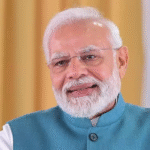Rahul Gandhi Accuses CEC of Shielding Democracy Destroyers
Rahul Gandhi Accuses CEC of Shielding Those Who ‘Destroyed Democracy’
Congress leader Rahul Gandhi has once again sharpened his attack on the Election Commission of India (ECI), accusing the Chief Election Commissioner (CEC) of “shielding those who destroyed democracy.” His remarks come amid a growing debate over the independence of constitutional institutions in India, especially with elections drawing closer. Gandhi’s statement sparked political ripples, with ruling party leaders dismissing his claims as baseless, while opposition groups rallied around his concerns.
This article examines the context of his accusation, the role of the Election Commission, reactions from political parties, historical parallels, and what this means for India’s democratic framework.
Background: Why the Criticism?
Rahul Gandhi’s criticism is rooted in the perception that the Election Commission, once hailed as a robust pillar of Indian democracy, has lately faced allegations of bias. Opposition leaders argue that the Commission’s decisions—ranging from timing of elections to handling of campaign violations—often seem tilted in favor of the ruling dispensation.
Gandhi, who has made institutional independence a recurring theme of his political narrative, chose to direct his fire toward the CEC. He claimed that the office meant to protect democratic values is instead being used to protect those accused of undermining them.
The Accusation in Detail
While addressing supporters, Rahul Gandhi stated:
“The Election Commission was designed to safeguard democracy. But today, its Chief shields those who have destroyed it. Instead of holding them accountable, the Commission looks the other way.”
This statement implied that the Commission was not acting impartially in monitoring political campaigns, investigating electoral malpractices, or ensuring a level playing field. Gandhi further alleged that by failing to curb money power, misuse of government machinery, and hate-driven campaigning, the Commission had betrayed public trust.
Role of the Election Commission
The Election Commission of India is a constitutional body responsible for conducting free and fair elections. Its primary functions include:
- Overseeing elections to Parliament, state legislatures, and the offices of President and Vice President.
- Monitoring political parties and candidates, including campaign finances and adherence to the Model Code of Conduct.
- Ensuring impartiality by preventing misuse of government resources.
- Taking disciplinary action against violators through warnings, fines, and disqualification proceedings.
Historically, the Commission has been celebrated for its independence. Legendary CECs like T.N. Seshan are remembered for cleaning up electoral practices. Gandhi’s remarks, therefore, suggest a sharp decline in that legacy.
Political Reactions
From the Ruling Party
The Bharatiya Janata Party (BJP) rejected Gandhi’s criticism outright. Party spokespersons argued that the Congress leader was attempting to undermine democratic institutions because of repeated electoral defeats. According to them, attacking the CEC is a strategy to pre-emptively cast doubt on the legitimacy of upcoming elections.
From the Opposition
Other opposition leaders echoed Gandhi’s concern. Parties like the Trinamool Congress, Aam Aadmi Party, and Samajwadi Party have also questioned the neutrality of the Election Commission in recent years. They argued that selective enforcement of rules and delayed actions against ruling party leaders raise legitimate questions.
Past Incidents That Fuel Doubts
- Election Schedule Controversies
Opposition parties have often alleged that the timing of elections is structured to benefit the ruling party, citing delayed announcements and staggered voting schedules. - Model Code of Conduct Enforcement
Several instances of alleged hate speech and communal remarks by senior leaders have gone unpunished, while opposition leaders claim they face harsher scrutiny. - Use of Enforcement Agencies
While not directly under the Commission, Gandhi tied his criticism to a broader pattern where institutions like the CBI, ED, and IT department are accused of being misused against political opponents.
Rahul Gandhi’s Broader Narrative
Rahul Gandhi’s remarks fit into his broader narrative of a democracy under siege. From Parliament to the judiciary, he has argued that institutions are being captured or influenced by the ruling regime. His focus on the Election Commission, however, is particularly significant because the credibility of elections is the cornerstone of democratic legitimacy.
During his speeches and social media campaigns, Gandhi often links institutional weakness to rising inequality, joblessness, and social disharmony. By alleging that the CEC is shielding “those who destroyed democracy,” he sought to highlight that the very mechanisms meant to safeguard fairness are compromised.
Expert Views
Political Analysts
Some experts argue that Gandhi’s remarks, while sharp, reflect real anxieties among voters about the fairness of elections. They point out that trust in institutions is declining globally, and India is no exception.
Legal Experts
Constitutional scholars emphasize that the Election Commission must not only be independent but also be perceived as such. If citizens believe it favors one side, democratic legitimacy suffers—even if elections remain technically correct.
Historical Context
India has seen tensions between political parties and the Election Commission before. During Indira Gandhi’s tenure, opposition parties accused the Commission of bias. However, in later years, figures like T.N. Seshan restored faith by cracking down on malpractices. Rahul Gandhi’s remarks therefore revive old debates about how insulated the Commission truly is from political influence.
Implications for Indian Democracy
If citizens lose faith in the Election Commission, it can have severe consequences:
- Erosion of Trust: Voter confidence may decline, leading to apathy or disengagement.
- Rise of Street Politics: Lack of faith in formal institutions could push opposition parties toward mass protests.
- Global Reputation: India’s status as the “world’s largest democracy” may be questioned internationally.
- Polarization: Institutional mistrust could deepen political divides.
BJP’s Counterattack
The ruling BJP launched a counteroffensive, accusing Rahul Gandhi of disrespecting constitutional bodies. Senior leaders suggested that by questioning the Election Commission, Gandhi was “preparing excuses for another defeat.” Some even said his remarks insulted millions of voters who continue to trust the electoral process.
Congress’s Strategy
The Congress party stood firmly behind Gandhi’s words. Party communications highlighted past controversies to argue that his accusation was not isolated. They framed the issue as part of a larger battle to “save democracy,” a theme central to their campaigns.
The strategy was two-fold: mobilize opposition unity by pointing to institutional decay, and rally citizens around the idea that elections are being unfairly manipulated.
Public Reactions
On social media, Gandhi’s remarks sparked intense debate. Hashtags related to democracy, the Election Commission, and institutional independence trended for hours. While Congress supporters hailed him as fearless for “speaking truth to power,” critics mocked his comments as political theatre.
Civil society groups and independent commentators offered mixed responses. Some welcomed scrutiny of the Commission, while others warned against blanket allegations that might erode public faith in elections.
Recent Posts
Categories
- Actor4
- Actress7
- Assam1
- Bank4
- Bihar5
- Biography2
- Bollywood4
- Business11
- Company9
- Cricket7
- Economy24
- Education7
- Election3
- Entertainment71
- External Affairs Defence Security1
- Finance1
- Football2
- Haryana1
- Health2
- Hollywood2
- Home2
- India84
- India10
- Industry6
- Karnataka1
- Kerala1
- Latest News77
- lifestyle1
- Maharashtra10
- Market7
- Politicians13
- Politics29
- Press Release798
- Social8
- Sports29
- Tamil Nadu2
- Technology25
- Tollywood3
- World49
- World17
Related Articles
“Rajnath Singh Says Modi to Stay BJP’s PM Candidate for Future”
Strong Statement on India’s Political Future Defence Minister Rajnath Singh has sent...
ByNewsium DeskSeptember 24, 2025Rohan Jaitley Responds to Rahul Gandhi’s Remark on Father
Rohan Jaitley Responds to Rahul Gandhi’s Remark on Father Arun Jaitley: A...
ByNewsium DeskAugust 2, 2025Trump Repeated India-Pak Ceasefire Claim: Ramesh
Introduction In a striking political critique, senior Congress leader Jairam Ramesh recently...
ByNewsium DeskJuly 15, 2025Aaditya Should Meet Raj If Sena (UBT) Serious: MNS Leader
Introduction In a significant development in Maharashtra’s political landscape, Maharashtra Navnirman Sena...
ByNewsium DeskJune 5, 2025














Leave a comment